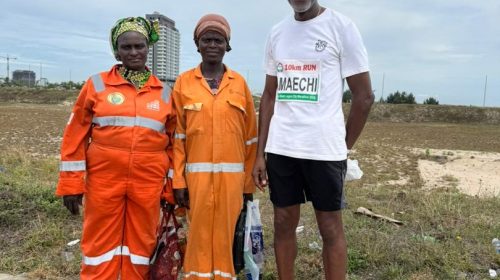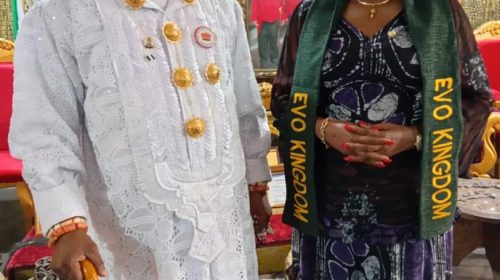2021 NIPR Directors’ Conference: Communication Practitioners Seek Improved Knowledge

The 2021 annual Directors’ Conference organised by the Nigerian Institute of Public Relations (NIPR) with the theme “Communication For The 21st Century Leader,” may have come and gone at the serene Ibom Icon Resort and Golf Glub in Uyo, Akwa Ibom State but the lessens gained by participants will go a long way to improving the practice of communications in the country at least going by the caliber of the faculty that trained the participants at the conference.
As usual, participants were drawn from different both the private and public sectors of the Nigerian economy and had representations from the media, Ministries, Departments and Agencies (MDAs) of both the states and the Federal Government. These professionals were locked in intense learning cross fertilisation of ideas that will advance the practice of communications practice in the country from November 10 to 12 at the Uyo resort.
From the array of facilitators that were on parade at this year’s edition of the conference, it was obvious that the NIPR presently led by its national president Mallam Mukhutar Sirajo FNIPR, President and Chairman of Council, NIPR; the Vice President and Vice Chairman of Council, ACG Mr Adewale Adeniyi, as well as the Chairman of the 2021 Directors’ Conference organising committee, Mrs Nkechi Ali-Balogun FNIPR wanted to give the participants a training that is both worth their money as well as time.
This year’s faculties include Mr Yomi Badejo-Okusanya better known in the industry as YBO, the Group Managing Director, CMC Connect BCW. YBO who was the lead facilitator at this year’s conference; Mr Celestine Achi, Chief Transformation Officer, DigiConverge and Pastor Oladimeji Thompson, a strong advocate of Non-Violent Communication (NVC). The rest include Mr Israel Jaiye Opeyemi FNIPR, Managing Director/Chief Strategist, Chain Reactions Nigeria; Mr Olufemi Awoyemi FIoD, the founder and Chairman of Proshare; Mr Segun Ogunyanwo, a consummate consultant on mediation and Human Engineering, and Barrister Karibi Tamunoemi George FNIPR, the Director, and head of Administration & Supplies as well as Public Relations Services at the Rivers State Universal Basic Education Board (RSUBEB).
At the end of the 3-day conference, practitioners were in agreement that communications practitioners in Nigeria must change their language to more of non-violent if they must let the people of Nigeria, which is multi-ethnic, multi-religious understand they message, which they aim to convey to the public. It was also agreed that any relevant communication head that wants to remain relevant must continue to invest, adapt and adopt the changing dynamics of technology, which has been made manifest by the dawn of the coronavirus (COVID-19) pandemic that has changed the way the world carry on with the day-today activities.
Some of the papers delivered at the conference include, “Sensitisation, Advocacy and Lobbying: The 21st Century,” by Yomi Badejo-Okunsaya; “Early Warning Signs, Mediation Skills, and Conflict Management in Relationships,” by Mr Israel Jaiye Opayemi; “Trends and Methods in Time Management and Protocol in Public Relations,” by Barrister Karibi George; “Optimising the Power of Digital Communication,” by Mr Celestine Achi; “Creative Leadership: The Directors’ Dilemma,” by Mr Olufemi Awoyemi; “Non-Violent Communication in National Integration and Peace Building,” by Pastor Oladimeji Thompson as well as “Experiential Marketing and Reputation Management in a Crisis Economy,” by Mr Segun Ogunyanmwo.
The NIPR formally known as the Public Association of Nigeria (until when it was renamed in 1072) was established in 1963. The body attained the status of a Chartered Institute on June 1st, 1990, through Decree No. 16 (now an Act of the National Assembly). This law empowers the Nigerian Institute of Public Relations to register members, regulate, and monitor professional conducts through an established Code of Ethics and Professional Conduct. As it is the practice with respectable professional organisations everywhere, the law allows standard academic, and professional qualifications for admission into the Institute.
At the helm of the Institute’s affairs is the President, assisted by a Vice President – in a 22-member Governing Council, comprising 17 elected and five Federal Government nominated members every two years. The President and Vice President are elected by electoral college constituted by the Council to preside over the affairs of the Institute. Thereafter, they are referred to as Chairman and Vice Chairman respectively. Administratively however, the council appoints a registrar, whose duty among others, is to prepare and maintain the register of members in accordance with the rules made by the Council.







Leave a Reply